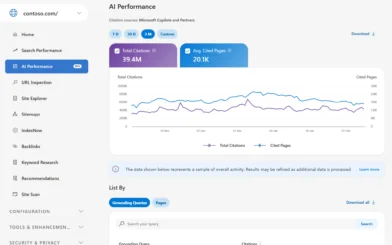“Okay Google”
“Hey Siri”
“Alexa…”
Yahoo first released voice search in 2008 and since Apple’s acquisition of Siri in 2010, mobile device manufacturers have continued to push the envelope of personal digital assistants. Yes, PDAs. Combined with the increasing trend of instant answers by search engines, it starts to make many within the search community question the future impact these devices and algorithm results will have on SEO.
At first glance most might think, well how is verbally asking my phone a question any different than typing on my keyboard into Google? It’s very different and understanding your own behavior interacting with both types of devices will help.
Traditional Typed Search
When typing, the average user trends toward simple searches using short phrases. “Google CEO” or “Current Google CEO,” a very unnatural sounding way of asking a question don’t you think?
Voice Prompted Search
In contrast, when interacting with a voice prompted device, users tend to ask questions and seek information in a way that is more conversational. “Who is the current CEO of Google?” Or, “what is the salary of Google’s CEO?” Without even knowing it, we alter the way we ask a question because it is more natural to speak this way versus typing into a search engine.
These types of searches are more common than many of us realize. While that is a bold statement to make, we are seeing signals inside of Search Console that correlates to a much more conversational type of search. Beyond that of the usual “longtail phrases” that many have come to know.
Earlier this year Google’s Director of Conversational Search, Behshad Behzadi, discussed the increasing number of users who are likely to have a conversation with their device (Search Engine Land) and is headed down the path of developing the next generation of personal assistants that can keep up with the ever-changing “now” population.

What does this mean for your site strategy?
In the immediate near future, probably nothing. But further on down the road you can believe the various types of personal assistants integrated into devices and growth within the Internet of Things is certainly going to impact on page SEO.
Developing a strategic approach for your content that can be optimized for a more natural language is going to be key. While our approach has always been to focus on the user first and search engine second, we believe this will become even more prevalent with voice-based searches.
Review and Adjust Content
Consider a content audit as a first place to start. Reviewing your major top-level pages to ensure they are not only relevant for the keyphrases that have been identified in your SEO strategy, but also that those pages read as natural as possible.
Next steps are to look at your future content strategy. Inclusive of blogs, Q&A for technical products/services, or location-based content that is especially valuable for those on mobile devices. Be inclusive of longer queries in your content that also provides a more natural language use. Meaning more questions-type phrases should be used. Monitoring your site through tools such as Google Search Console will aid you in understanding the intent of your users, allowing you to adjust your strategy accordingly.
Which Search Engine Dominates Voice Search?
When iOS 7 rolled out, Apple made the cut to using Bing exclusively to power Siri searches. Cortana being a Microsoft interface, obviously uses Bing. However, there are more Android-based devices worldwide at over 80%. Safe to say, Google is dominating voice search.
Understand how each of these voice search platforms encourage their users to interact with the device. Consider tailoring the content types mentioned above to be inclusive of this type of language.
Review Your Mobile Friendliness & Local Presence
Seeing as though the majority of voice searches are happening on mobile devices, consider this your reminder to get your site mobile friendly and preferably that of a responsive design. Use Google’s Mobile Friendly Test to see how you’re stacking up.
Voice-based searches are 3x more likely to be location specific and adapting some of your content to fulfill these types of queries is only going to benefit you in the long run. Whether we like it or not, a large number of mobile voice searches are being performed while driving or in the car. Individuals are seeking directions, contact information and services nearby. It’s best to mind your N.A.P.
Name. Address. Phone number (NAP). Ensure that these pieces of information are in a text format on your site and that it’s consistent.
In our opinion, the search box isn’t going anywhere any time soon, so you still need to keep your eye on the prize and optimize for your audience. Be where they’re at across all devices and search types.



